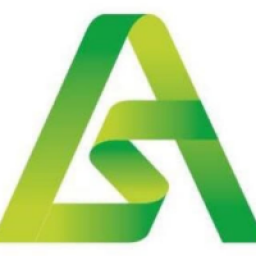Running a family business can be a tricky balancing act. As business owners, not only must you support all aspects of the business, but you also have to balance your professional and personal relationships, to achieve your commercial goals.
More often than not, corporate structure, shareholder protection, and inheritance planning are not a priority for business owners and are repeatedly neglected in favour of running the actual business which is understandable.
Business owners should ensure that the company has the correct constitution in place and is structured in a manner that best serves the business and the business owners. Shareholders should also regulate the position between themselves, the company directors and the company itself to ensure that the correct level of control over key business decisions is maintained at all times protecting the business from decisions being made that are not in the best interests of the business.
In this article we explore the importance of having the correct legally binding documents in place and why business owners should prioritise getting such documents in place and keeping the documents under constant review.
What is Shareholder protection and why is it useful?
Ensuring your business has the necessary protection in place is often crucial to ensure your business and family are protected in certain situations.
The key elements of shareholder protection can safeguard your business and family members in the event of the divorce, death, retirement or bankruptcy of a shareholder. The agreement will also set out in advance how disputes should be dealt with and will also prepare for what will happen when things go wrong or the relationship between the shareholders sours. Having the necessary protection in place can assist a shareholder in dealing with an exiting shareholder’s shares, in valuing those shares, and dealing with how those shares may be disposed of or transferred.
Shareholder protection is achieved through the company having appropriate articles of association in place which governs how the company is run and a shareholders’ agreement and a cross-option agreement which quite often is backed by a life insurance policy that is written in trust. Consideration should also be given to ensure that there are service agreements in place between the directors of the company and the company itself. This is important both where the directors are shareholders and where the directors have no equity stake in the company.
It is important that business owners take not only legal advice, but also the advice of their accountants on the correct structure to best protect the business and also seek financial advice about obtaining appropriate insurance policies such as relevant life policies and key man insurance policies. It is also vital that the documents are prepared alongside a business owner’s Will and Lasting Powers of Attorney and that the documents do not contradict one another.
Articles of Association
All registered companies must have articles of association and it is common for a newly incorporated company to adopt model or standard articles, which often do not include many of the provisions that can deal with potential disputes or shareholder issues. However, there may be provisions under the model articles that a company may not benefit from.
Given the articles of association regulate the affairs of the company and form the basis of a statutory contract between the shareholders of the company, and between each shareholder and the company, it is important to ensure that the adopted articles have been prepared with the company’s aims and objectives in mind. Given the importance of the articles of association, they should be tailored to each company’s particular requirements, taking into consideration matters such as different classes of shares or minority shareholder protection.
Although the articles of association will govern the company and provide some protection, they should not be solely relied upon as they often do not include, and it is not always appropriate for them to include, provisions that will deal with shareholder issues or minimise the risk of dispute between shareholders and provide appropriate ways for them to be handled.
Shareholders Agreement
A shareholders’ agreement is a contract between the shareholders of the company, which the company can also be a party to, which regulates the relationship between the shareholders. The shareholders agreement is a private document and there is no requirement for this to be filed at Companies House.
It is important that a shareholders’ agreement is prepared as early as possible in the relationship between the shareholders and we would always recommend that this is entered into on incorporation where possible. It is easier to agree the content of the agreement when all parties have the same ambition for the company and are on the same page when it comes to what the parties want to achieve making it easier to agree the terms.
It also gives the parties the chance to discuss and agree a process of what should happen if the relationship was to break down at a time when this is not expected to happen which can often lead to a more neutral and even stance than if this is left much later.
A shareholders’ agreement will deal with the following areas:
- Key business decisions that require the consent of all or a majority of the directors before the company can proceed. This can include entering into a contract with a high contract price or unusual length of time, buying a piece of equipment for a significant value, taking on a senior employee or declaring a dividend.
- What happens to the shares of a shareholder that is made bankrupt, is dismissed from their employment or who passes away including who these shares should be transferred to and how much should be paid for these shares.
- What happens if a shareholder simply wants to leave the company through, for example, illness or retirement?
- Imposing restrictive covenants upon the shareholders to protect the business both during the period when the shareholder holds the shares and for a period of time after they have left the business.
- If the share capital is divided equally between shareholders, it will be necessary to include deadlock provisions where shareholders are unable to reach a resolution on certain matters.
- Including drag and tag along rights, which deal with situations where some shareholders wish to sell their shares to a buyer leaving an obstructive minority that do not wish to sell, or where a buyer only wishes to purchase the majority shareholding leaving a weak minority in place.
- Provisions are often included to prevent members from being able to transfer their shares to third parties without the approval of other existing shareholders or without those existing shareholders first being offered those shares, known as pre-emption rights.
- Provisions to give the ability to transfer shares to family members or family trusts for personal tax or succession planning reasons.
- A bespoke dividend policy to provide for an annual dividend or a certain percentage of the annual profit.
The absence of a shareholders’ agreement opens up the potential for disputes between the shareholders or, in the worst-case scenario, result in the company having to be wound up due to deadlock being reached with no way of dealing with this.
Cross-Option Agreement
A cross option agreement can provide the shareholders assurance that their shares will be sold on their death, and the agreed consideration will pass to their estate. The agreement provides surviving shareholders with the right to buy shares when a shareholder passes away, as well as providing the deceased’s personal representatives the right to require the surviving shareholders to buy those shares.
A cross-option agreement will provide certainty as to the terms on which the compulsory purchase or sale of the deceased’s shares may take place at some point in the future.
The articles of association of the company, as well as any shareholders’ agreement, must be considered when drafting a cross-option agreement to ensure that any transfer provisions do not conflict with the cross-option agreement.
The cross-option agreement should also be drafted in conjunction with the shareholder’s will and lasting powers of attorney, to ensure they reflect the individual’s wishes.
Your Will and Lasting Powers of Attorney
Your Will is critical to your business survival and succession planning as this, alongside any shareholders agreement or cross-option agreement, will dictate how you wish to deal with your business upon your death. We will explore the options for your business upon your death and we will draft a bespoke Will for you with reference to inheritance tax planning (and Business Property Relief, if applicable) and succession planning in the event of your death. We can ensure that your Will and estate planning are inheritance tax efficient, based upon the current legislation.
Lasting Powers of Attorney are legal documents that allow you to choose individuals that you trust, known as your Attorneys, to deal with your property and financial affairs (and business affairs) and health care decisions should you either lose your mental capacity or be incapable of managing your affairs (for example, should you be unable to talk on the telephone or visit your bank). Lasting Powers of Attorney are important for business survival and succession as you can choose whom you would like to make important decisions on your behalf, should you become poorly. Our Lasting Powers of Attorney are tailor made to deal with your individual business and financial requirements together with your health care decisions.
Your Will and Lasting Powers of Attorney should be reviewed should either your personal, business, or financial circumstances change and also alongside any business restructure. Should you require any further advice, please do not hesitate to contact our highly experienced Private Client or Family Business Team.
 Flourish Therapy Clinic
Flourish Therapy Clinic






